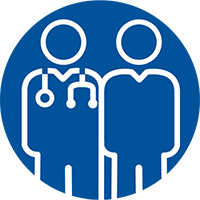Our Mission
To create an environment that values our differences and enables our faculty to reach their academic goals by developing their careers through greater engagement, mentorship and coaching.
Programs
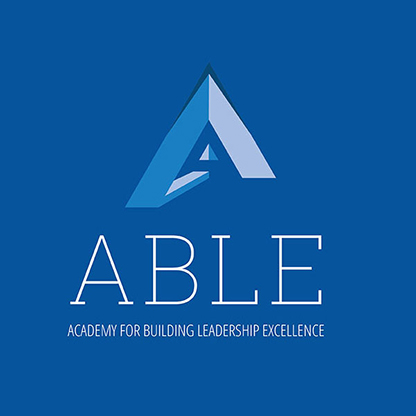
The ABLE Program is designed to accelerate career development for junior faculty in their chosen pathway by pairing them in a one-year program with a personal coach. The program involves training in aspects of career development that include strategies to build resilience, enhance professional skills, and learn the infrastructure that supports their chosen domain. The training will be accomplished through small group discussions, lectures, and participation in online programs available within the institution. In addition, regular meetings with the personal coach, a senior faculty member, will enhance the value of the program. The ABLE Program supplements existing mentor relationships.
The importance of effective mentorship in the first five years of a junior faculty’s professional life strongly correlates with their sense of fulfillment and level of success as a physician-scientist in academic medicine. In light of this knowledge and the department’s commitment to promote the success of its junior faculty, a formalized Duke Anesthesiology mentorship program was developed in 2009. This initiative was the vision of Dr. Mark F. Newman, former chairman of Duke Anesthesiology and former president of Duke’s Private Diagnostic Clinic. Its implementation was initially made possible with the help of Dr. Tong-Joo Gan. The mentorship program pairs junior and associate faculty members with world-class experts who serve as mentors and not only provide guidance and encouragement, but challenge their mentees to extend themselves and their vision in the service of the continued advancement of patient care in innovative and revolutionary ways.
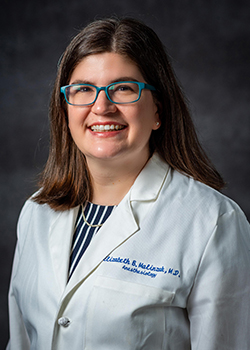
The mentorship relationships I have developed in the first five years of my career have been instrumental in my growth as an academic anesthesiologist, educator and leader. Starting from my first day as a faculty member of Duke Anesthesiology, mentorship was established as a priority. My division chief provided guidance as I navigated the transition from trainee to faculty and continues to be an essential counsel. Additionally, the department’s formalized mentorship program provides a structured process involving twice-yearly check-ins to discuss accomplishments, failures, challenges, and goals. The mentor-mentee relationship I have developed through this program with Dr. Nancy Knudsen has been invaluable. She has helped to hone my academic interest in medical education, sponsored me for excellent opportunities, and is a force driving my career development at local, regional, and national levels. She is the first person I turn to for career advice. Recently, I was honored to become an inaugural ABLE scholar in medical education, which offers formalized mentoring and coaching from Dr. Jonathan Mark and Dr. Mark Stafford-Smith. Dr. Mark previously served as my residency advisor, and it has been wonderful to reconnect with him in a different capacity. I am grateful for the tremendous investment that all of these individuals and the department has made in me.
I’ve also been fortunate to establish informal mentoring relationships. Some have invested more time than others, but all have provided guidance for my career, and I know will continue to grow in the future. As a woman in anesthesiology, I have also appreciated the sage wisdom of the senior faculty I admire greatly, such as Drs. Catherine Kuhn, Annemarie Thompson and Padma Gulur, in addition to my formal mentor, Dr. Knudsen. I’ve been able to use what I have learned from all of my mentors to connect with resident mentees. Mentorship through Duke Anesthesiology has given me the confidence to pursue my academic goals and the support to grow as a leader.
—Dr. Elizabeth Malinzak
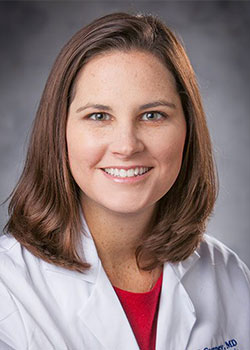
Mentorship is one of the most important aspects of building a successful and fulfilling career in academic medicine. Good mentors will see the potential in their mentee and help them in meaningful research projects, encourage them to find funding opportunities, and build a regional and national reputation in their area of expertise. A good mentor can often be that person you go to when you “just need to talk” or are experiencing burnout or dissatisfaction in an aspect of your career – they will listen, give advice, but always maintain a favorable perception and help you get through the rough times.
Good mentor and mentee relationships can sometimes be found early on in a career, but other times may take a while to find. However, once a good mentor/mentee relationship is found, it is a priceless gem for which there is no substitute.
—Dr. Sharon McCartney
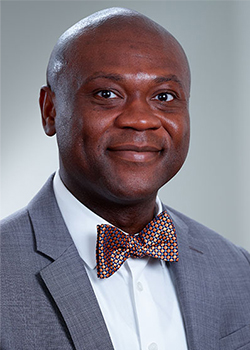
I came to Duke in 2017 for a clinical fellowship in perioperative medicine, under the mentorship of Drs. Tim Miller and Michael Manning. Our mentoring relationship, however, began while I was still a chief resident at SUNY Downstate in Brooklyn, NY. Drs. Miller and Manning were committed to understanding what fueled my clinical passion and research interests, and were determined to ensure my smooth transition from residency to fellowship. Dr. Manning wanted me to experience the level of support that he received during his career. Dr. Miller is a renowned leader in Enhanced Recovery After Surgery techniques, division chief of GVT and director of the Perioperative Medicine Fellowship. Our mentoring relationship flourished during my fellowship, as he always made himself available for me and always provided opportunities for me to advance my clinical and academic capabilities. He is an exemplary leader and role model to me.
After completing fellowship and joining faculty in 2018, my mentoring team expanded to include Dr. Paul Wischmeyer; a world expert in perioperative malnutrition and the impact of nutrition on surgical outcomes. He quickly took me under his wing to help me develop research objectives and advance methods of data analysis, encouraged my formation of a diverse set of professional relationships, and helped to establish my academic career. He is someone who I look up to and seek to emulate. I received a T32 NIH training grant as a result of the support from my mentors.
I have been fortunate to have mentors who are interested not only in my academic and professional development, but also my personal well-being and growth. I believe it is this sort of connection and bond that fosters true success.
—Dr. David A. Williams
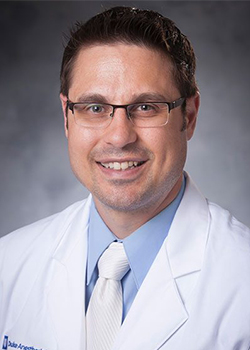
Dr. Jamie R. Privratsky believes that mentorship has played a vital role in his development as a physician scientist. He has had scientific and clinical mentors who have guided him all the way back to his days as an undergraduate student at the University of North Dakota, where Dr. Loren Wold stimulated his curiosity in research in Dr. Jun Ren’s lab. Dr Privratsky fondly remembers the guidance of Dr. Peter Newman at the Medical College of Wisconsin during the MSTP program. “Dr. Newman really trained me how to be a scientist. He was a tremendous example of how to run a laboratory and conduct myself as a primary investigator. To this day, when confronted with an issue of how to run a laboratory or train people, I think about how Peter did things and I try to emulate that.”
Dr. Privratsky came to Duke University in the Academic Career Enrichment Scholars (ACES) program within Duke Anesthesiology and went on to pursue a critical care fellowship prior to joining the faculty. His primary research mentor is Dr. Steven Crowley in the Department of Medicine. “Dr. Crowley has trained me in a whole new discipline. He continues to hone my writing and laboratory management skills as I develop independence. He gives me the freedom to explore ideas and provides the resources and expertise to be successful. He is the reason I received a K award from the NIH.”
Dr. David Warner was the ACES director during residency and fellowship. He continues to serve as Dr. Privratsky’s early career faculty mentor in the department and has been a co-mentor on Dr. Privratsky’s career development awards. “Dr. Warner is teaching me how to be a basic science researcher in anesthesiology and the unique challenges and opportunities of pursuing cross-disciplinary research.”
“Overall, my career has been shaped by my mentors: their example, their personalities. They have looked out for me and advocated for me. I am just grateful that all of them took the time to shape my career because I would not be where I am today without them.”
—Dr. Jamie Privratsky
Meet our Faculty Development Leadership Team
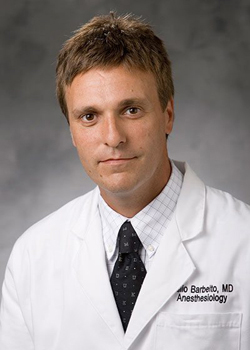
Atilio Barbeito, MD, MPH
Associate Professor of Anesthesiology
Vice Chair, Faculty Development
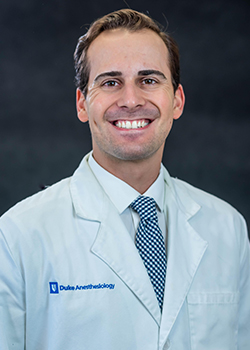
Ryan M. Gessouroun, MD
Assistant Professor of Anesthesiology

Elizabeth B. Malinzak, MD
Director, Medical Student Education
Associate Professor of Anesthesiology
Clinical Coordinator, Duke Eye Center
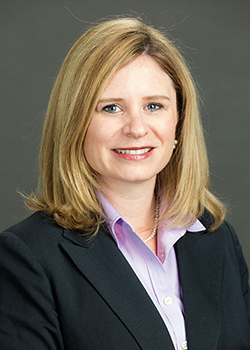
Dana Rawls
Director of Operations
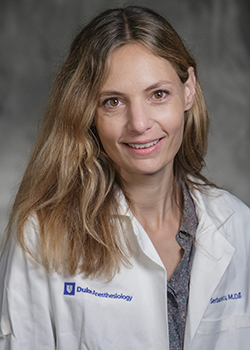
Mara Serbanescu, MD
Assistant Professor in Anesthesiology
Educational and Research Resources

An essential academic skill involves scientific writing for abstracts, manuscripts and grants. While most faculty receive training in their specialty or subspecialty, we seldom receive focused training in academic writing. In a series of workshops aimed at developing writing skills, expert Kathy Gage takes a small group of faculty through an intensive course in scientific manuscript writing. Faculty bring data that is analyzed and ready to be transformed into a manuscript and work together to take the project to completion including submitting the first draft to a candidate journal. Faculty participants write together and discuss challenges, strengths and limitations, to enhance each others’ work under expert guidance.

Awards

The GEM (Going the Extra Mile) award recognizes faculty members who epitomize the values of Duke Anesthesiology and Duke University. It is an opportunity for faculty to recognize each other for going above and beyond expectations. The GEM award acknowledges exemplary service and dedication to advancing the goals and mission of Duke Anesthesiology.
This nomination is being submitted confidentially to the Office of Faculty Development. Responses will be shared with nominees unless otherwise indicated by nominator.
Criteria
The following are recommended guidelines to consider when nominating a faculty member for the GEM of the Month award. The GEM award recognizes faculty who:
- Volunteer their time to help colleagues in need
- Motivate others in their pursuit of excellence by encouraging a positive attitude or mindfulness
- Address challenges at work with innovative solutions
- Help boost morale or create a positive work environment
- Exceed expectations for a goal or project
- Demonstrate integrity and a strong commitment to the mission and values of the department
- Set an example by supporting colleagues to build team work in the perioperative environment
Examples include:
- Staying after duty hours to help a team care for a sick patient
- Acts of kindness to build a positive environment
- Spending time to counsel or listen to a colleague facing challenges
- Informally mentoring and providing resources to a junior colleague for a project
Process
- The award is open to all Duke Anesthesiology faculty
- Any department member may nominate one or more faculty members every month.
- Nominations will be made through the GEM website. The faculty name and brief description of why they should be recognized as a Duke Anesthesiology Faculty GEM. Specific examples are encouraged and will strengthen the nomination.
- All faculty nominated for the monthly GEM award will receive recognition.
- The Duke Anesthesiology Faculty GEM of the month will receive a letter from the chair, announced in the department newsletter, featured on the department website and on the rolling screens in the HAFS display monitors.
- The faculty member that receives the most GEM of the Month awards, or as selected by the Executive Committee will also receive a plaque as the GEM of the Year at the final faculty meeting of the calendar year.
- In case no faculty member receives more than one GEM of the Month award, nominations will open in December for the GEM of the Year nominations. The process will remain the same.

Congratulations on your recent award!
We would like to recognize all faculty who are recognized for their contributions. If you have been recognized at a local, regional, national or international level with an award, honor, or election to a position, please let us know! Enter the information here so we may honor you too! Examples include – Jennifer Dominguez, MD, elected as Councilor for Obstetrics for the SAAAPM; Ashraf Habib, MD, selected for the Ostheimer lecture by SOAP; Sharon McCartney, MD, selected for the ASE Leadership Academy; Alina Nicoara, MD, received the AWEsome award from the SCA.
